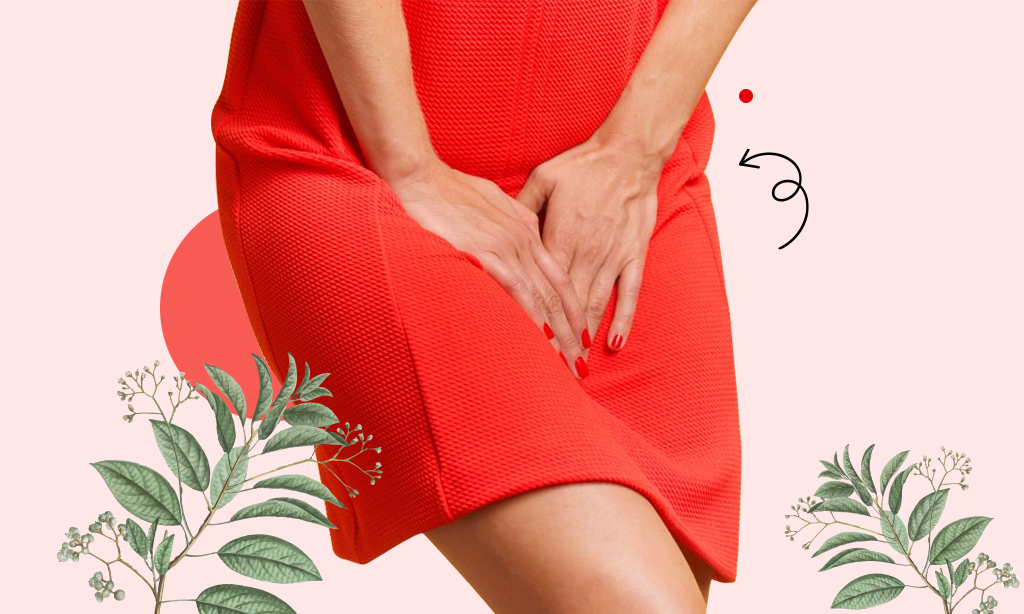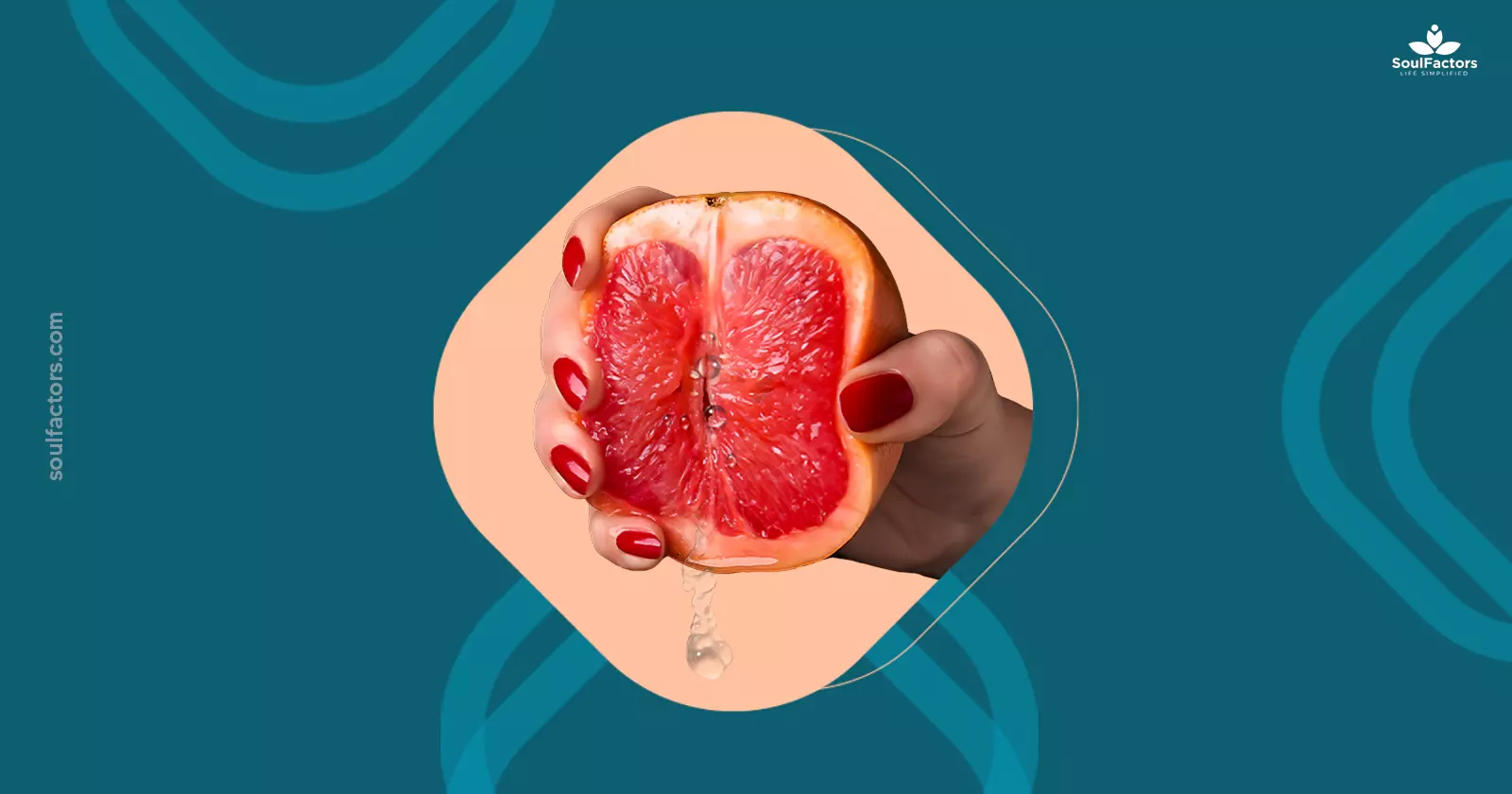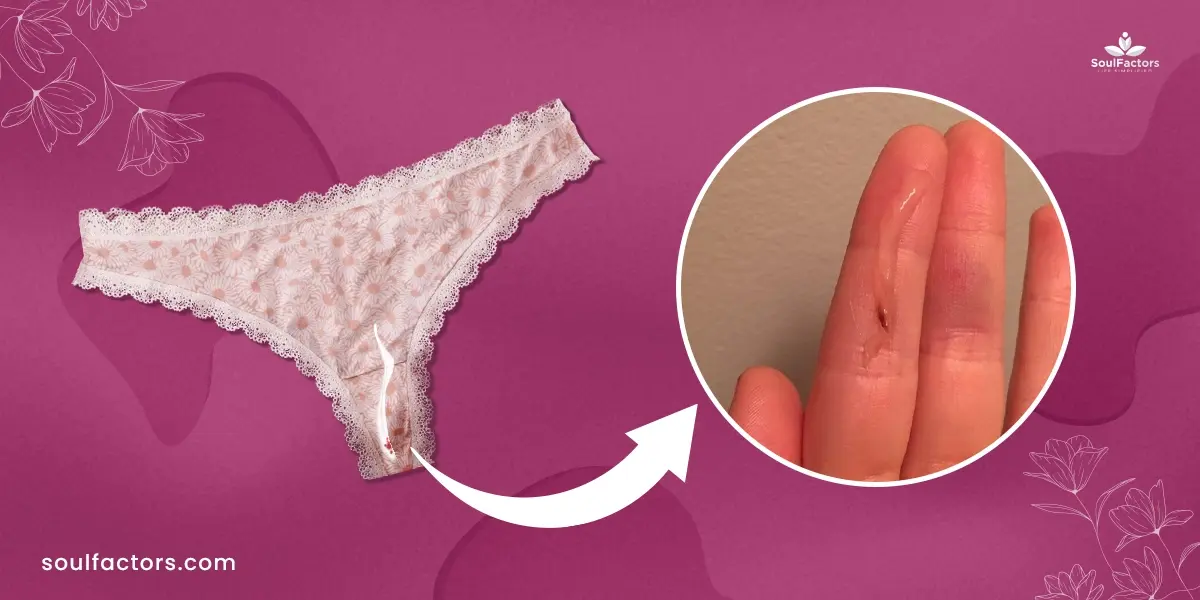Honeymoon Cystitis: Tips For Prevention And Treatment!
Sometimes what follows lovemaking is a bladder infection for women. Honeymoon cystitis, though not a serious concern, can be prevented.
On Feb 26, 2024 – 9 minutes read

Did you know that nearly every woman will experience honeymoon cystitis at some point in her life? Research shows that 1 in 2 women have dealt with honeymoon cystitis, making it a very common issue. So, if you’re new to this and are about to embark on your honeymoon, there’s no need to worry. This condition is manageable.
If you’re unfamiliar with honeymoon cystitis and didn’t even know it existed, this article will provide insights into what it is, its causes, symptoms, and treatment options.
Honeymoon Cystitis: A Urinary Tract Infection You Might Experience
The honeymoon phase in every romantic relationship often involves frequent lovemaking. Whether it’s right after getting married, reuniting with your partner after a long separation, resuming physical intimacy after childbirth, or reigniting your sex life after a period of abstinence, these situations typically involve lots of sex. This is where honeymoon cystitis comes into the picture.

Honeymoon cystitis is a playful term for cystitis that occurs after sexual activity. Typically, it’s during the honeymoon phase when couples engage in frequent sex, hence the whimsical name of the condition! However, it’s not limited to just the honeymoon period; it can occur at any point in a woman’s life. Additionally, despite its name, unmarried women—anyone with a vagina—can experience honeymoon cystitis if they engage in sexual activity.
Medical Aspect Of Honeymoon Cystitis
Let’s delve into the medical aspect. Cystitis is the medical term for inflammation of the bladder. In most cases, cystitis is caused by a bacterial infection known as urinary tract infection (UTI). This infection affects the urinary system, including the urethra, bladder (which are normally free of microbes), and kidneys.
While it’s typically not a major concern, cystitis can be painful and quite bothersome, causing ongoing discomfort. Only about 4% of UTI cases progress to a bladder infection. However, if the infection spreads to the kidneys, it can lead to serious complications. Therefore, it’s always best to treat honeymoon cystitis.

UTI is a fairly common infection that affects both sexes and all ages, but especially women in their early 20s and 50s. Here, as a woman, you can blame the shorter urethras all you want! Despite how unfair that sounds, according to the National Kidney Foundation, one in five women will get a UTI at least once in their life.
While all of this may seem a bit daunting (especially for those gearing up for their honeymoon), honeymoon cystitis isn’t cause for alarm. In most cases, it resolves itself within a few days. If not, it’s usually easy to manage. Now that you’re familiar with honeymoon cystitis, let’s explore its causes. Why does it occur, and why is it more prevalent in women?
What Causes Honeymoon Cystitis?
Honeymoon cystitis is commonly caused by sex. But it’s not a sexually transmitted disease nor is it contagious. Clear? Assuming that’s out of the way, let’s get into the details.
There are different causes for honeymoon cystitis, but the most common cause is coital activity. This is not to say that your partner is pushing some kind of bacteria in your vagina either.

The straightforward explanation for this condition is “bacteria in the wrong place.” Bacteria naturally reside near the vagina and anus, which is normal. Most of these bacteria are part of the healthy intestinal flora. However, when they migrate into the sterile, microbe-free space in the urethra and bladder, they can lead to honeymoon cystitis. Essentially, it occurs when bacteria that shouldn’t be there make their way into these areas.
Unfortunately, bacteria can ascend or be mechanically pushed up the urethra and into the bladder during sexual activity. E. coli bacteria, which typically reside on the skin around the anus, can be transferred toward the vagina (via a partner’s penis or fingers) and urethra. Subsequently, they navigate through the urethral passageway into the bladder, causing an infection. In other words, bacteria adhere to the bladder lining, triggering inflammation and irritation in the area.
How can bacteria get into your urethra?
Now you understand why penetrative sex can easily cause UTI. And condoms offer no known protection against or prevention from UTI. It is also important to point out the fact that it is easy for bacteria to get transferred as the anus and urethra are closer in proximity. Considering the short distance, we are lucky we don’t get infected more frequently.

Now, to answer the question of why it is more common in women: it comes down to female anatomy. When compared, the female urethra is shorter —(1.5 inches) and the male urethra —(7 to 8 inches) is much, much longer. So, once the bacteria get inside the female urethra, they can travel up to the bladder in a shorter distance. On the other hand, the bacteria don’t often make the trip to the male urethra especially if they flush them out right after sex.
Other Causes of Honeymoon Cystitis:
Sex isn’t always the culprit behind cystitis, and certain women may be more prone to it than others. For example, consistently wiping from back to front after a bowel movement instead of front to back can transfer bacteria and lead to infection. You might be at higher risk if your vagina is dry or irritated—this can occur from frequent or prolonged sexual activity or due to hormonal fluctuations.

Hormonal changes can occur post-menopause or during pregnancy and breastfeeding. Additionally, other factors such as using a diaphragm with spermicides for birth control, having a full bladder, tampon usage, undergoing radiotherapy, experiencing a blockage that obstructs urine flow, or having other kidney or bladder issues can also contribute to cystitis.
Why Is It More Common In Women In Their 20s and 50s?
Honeymoon cystitis tends to develop when you have sex for the first time. Women in their early 20s have sex for the first time and, also, more often. In addition, older women getting back into their sexual life (say, after divorce) are more likely to develop UTIs. Older women hitting menopause can also develop UTIs. Because menopause can cause thinning and drying of the mucous membrane lining the urethra and vagina. This makes them more susceptible.
Symptoms Of Honeymoon Cystitis
You might not be familiar with honeymoon cystitis, but you could recognize its symptoms. Your body will signal that something isn’t right. Common signs and symptoms of honeymoon cystitis typically include:

- Intense and continual urge to urinate
- Dysuria: a burning sensation while urinating
- Hematuria: the presence of blood in the urine
- Frequent urination in small amounts
- Dark, cloudy, or pungent-smelling urine
- Pelvic discomfort
- Pressure sensation above the pubic bone, lower abdomen, or back
- Mild fever and chills — possible indicators of kidney infection
- Feeling weak or shaky
- Painful intercourse
What Are The Treatment Options For Honeymoon Cystitis?
Now that you know the all-too-familiar symptoms of honeymoon cystitis, let’s move to the next important question. What can you do if you suffer from honeymoon cystitis?

In most instances, it resolves spontaneously within a few days. However, if symptoms persist beyond a week, it’s essential to consult your doctor. Before initiating any treatment, your doctor will conduct a urinalysis to confirm the diagnosis of honeymoon cystitis, as symptoms can resemble those of interstitial cystitis, which requires different management.
Once confirmed, your doctor will likely prescribe a 3- to 7-day course of antibiotics to treat honeymoon cystitis. Commonly prescribed honeymoon cystitis antibiotics include:
- Nitrofurantoin
- Trimethoprim-sulfamethoxazole
- Amoxicillin
- Cephalosporins
- Ciprofloxacin
- Levofloxacin
- Macrodantin
- Bactrim
Depending on the patient’s condition, the doctor will prescribe treatment accordingly. For example, individuals with a weakened immune system or older adults are at a higher risk of the infection spreading to the kidneys. Therefore, the doctor must approach treatment cautiously, particularly with pregnant women.
Typically, symptoms improve within a day of starting antibiotics. Most patients respond well and quickly to treatment. However, if symptoms persist even after completing the antibiotic course, it’s important to revisit your doctor. If you experience significant side effects from the antibiotics, don’t hesitate to contact your doctor for alternative treatment options. In rare, painful cases, a short-term pain reliever may be prescribed.
Additionally, it’s crucial to complete the entire course of treatment exactly as prescribed by the doctor to prevent the infection from recurring. While waiting for the treatment to take effect, using a heating pad can help alleviate and reduce feelings of bladder pressure or pain.
Preventing Honeymoon Cystitis In The First Place
Prevention is always preferable to treatment. In the case of honeymoon cystitis, there are several ways to prevent it. The following preventive measures are considered natural remedies for honeymoon cystitis. If you don’t typically experience frequent UTIs, adopting these preventive measures can certainly be beneficial:

- Drink an ample amount of water, aiming for at least six glasses a day, which is also recommended for those already experiencing cystitis. Proper hydration is crucial to prevent urine from becoming concentrated.
- Empty your bladder both before and after sexual intercourse to reduce the likelihood of developing honeymoon cystitis. One of the most effective preventative measures is to urinate after sex. By doing so, you can flush bacteria from the urethra, preventing it from entering the bladder. If you need to drink water to facilitate urination, do so. Some women may experience difficulty urinating immediately after sex due to tense muscles, which can result in urine remaining in the bladder and increasing the risk of infection.
- Avoid delaying urination when you feel the urge to go. Holding urine can encourage harmful bacteria to adhere to the bladder walls and multiply, particularly if you already have a UTI.
- Incorporate cranberry juice into your regular diet, as it’s believed to offer protection against cystitis by preventing bacteria from adhering to the bladder walls. While the evidence supporting this is not conclusive, the increased liquid intake can still be beneficial. However, it’s important to note that cranberry juice cannot cure an existing UTI once it has developed.
- After a bowel movement, always wipe from front to back, ensuring you wash in the following order: urethra, vagina, and anus. This practice prevents bacteria from the anus from entering the urethra.
- During sex, use a lubricant to prevent vaginal dryness.
- Experiment with different sex positions and maintain good hygiene practices afterward.
- Strive to maintain a healthy immune system.
- Limit consumption of alcohol, excessive coffee, soda, and acidic fruit juices like citrus to avoid irritating your bladder.
- Refrain from using deodorant vaginal sprays or other feminine products with fragrance, as they can irritate the urethra. Opt for water-based products instead.
- Opt for cotton underwear and avoid tight-fitting garments.
- If you use a diaphragm or spermicide, consider switching to alternative contraception methods.
Frequently Asked Questions
In most cases, honeymoon cystitis lasts for a few days and they do resolve on their own.
Usually, people assume you can transmit honeymoon cystitis to your partner. Since the bacteria are found in a woman’s urinary tract, it is less likely to get passed to your partner. However, if an STI or thrush is on the table, honeymoon cystitis can be transmitted between partners during sex. So, it is important to keep an eye on your symptoms.
Well, sex is not contraindicated during honeymoon cystitis or UTI because it’s not contagious. But any doctor would advise you to abstain from sex until the infection resolves. Because vaginal penetration may be extremely painful with UTI.

Subscribe to Newsletter
Elevate your routine, stay on trend, and embrace a personalized beauty journey with our curated insights.





Write a Comment